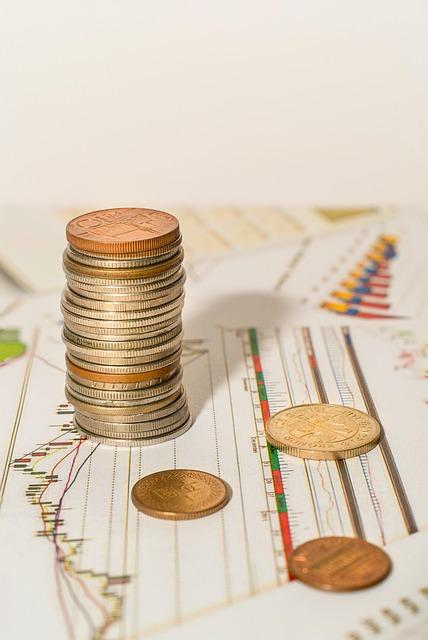Ever wonder what an economy expert actually does all day? It sounds fancy,right? But when you strip away the jargon adn headlines,their job is pretty fascinating-and way more relatable than you might think. Whether it’s decoding the rise and fall of markets, advising governments, or helping businesses make smart moves, these pros have their fingers on the financial pulse that keeps our world ticking. So, let’s break it down and see what being an economy expert really means!
Understanding the Day-to-Day Work of an Economy expert
Economy experts often wear many hats, juggling tasks that require both sharp analytical skills and a keen understanding of global trends. Their typical day might include poring over economic data, interpreting market movements, or advising businesses and governments on financial strategies. These professionals constantly monitor indicators such as inflation rates, employment figures, and GDP growth to predict future economic conditions. But it’s not just about crunching numbers; they also translate complex findings into clear, actionable insights that anyone can understand.
Here’s a sneak peek at some of the core responsibilities they tackle on a daily basis:
- Data Analysis: Gathering and examining statistics to identify economic patterns.
- Risk Assessment: Evaluating potential economic threats and advising on mitigation strategies.
- report Writing: creating detailed reports and forecasts for stakeholders.
- Consulting: Helping clients make informed financial decisions based on economic trends.
| Task | Purpose | Frequency |
|---|---|---|
| Market Trend Analysis | Spot emerging economic opportunities | Daily |
| Policy Impact Review | Assess how new laws affect the economy | Weekly |
| Forecast Report writing | guide clients on future planning | Monthly |
How They Analyze Market Trends and Data Like a Pro
Economy experts dive deep into heaps of data, transforming raw numbers into clear insights that drive smart decisions. They rely heavily on a mix of advanced tools and techniques like statistical software, trend analysis models, and predictive analytics to identify patterns that aren’t obvious at first glance. By tracking variables such as consumer behavior, interest rates, and employment figures over time, they create a clear picture of where the market is headed-before the rest of us catch on.
What sets them apart is not just their ability to interpret numbers but how they present this facts. They often use simple yet powerful visuals to make data digestible, such as these key indicators:
- Growth Rate: Evaluates how quickly an economy or sector is expanding
- Inflation Trends: Tracks increases in price levels that affect purchasing power
- consumer Confidence Index: Measures how optimistic or pessimistic consumers feel
| Indicator | Purpose | Impact |
|---|---|---|
| GDP growth | Overall economic health | Investment decisions |
| Unemployment Rate | Labor market strength | Policy adjustments |
| Stock Market trends | Market sentiment | Forecasting cycles |

The Secret Weapons Economy Experts Use to Predict Changes
When economy experts want to predict shifts in the market, they don’t just rely on gut feelings or trends in headlines.They deploy a set of advanced tools and indicators that work like a secret playbook. by analyzing variables such as consumer behavior, inflation rates, and employment stats, they can build models that reveal what might come next. These experts often tap into massive datasets and use algorithms to identify subtle patterns invisible to the casual observer. It’s this blend of numbers and nuanced interpretation that gives them a leg up in forecasting economic twists and turns.
Some of the most powerful weapons in their arsenal include:
- Leading Indicators: Metrics like new housing permits or manufacturing orders that hint at future economic performance.
- Sentiment Analysis: Tracking consumer confidence and business mood through surveys and social media trends.
- global Supply Chain Data: Understanding disruptions and movements in real time.
Check out this rapid snapshot of key economic indicators and their typical uses:
| Indicator | What It Measures | Why It Matters |
|---|---|---|
| Stock market Trends | Investor confidence | Predicts economic momentum |
| Unemployment Rate | Labor market health | Signals consumer spending power |
| Inflation Rate | Price stability | Affects purchasing decisions |
| Manufacturing Output | Production activity | Indicates economic growth speed |
Helping Businesses and governments Make Smarter Decisions
Economy experts dive deep into data and trends to help both businesses and governments steer clear of costly mistakes. They analyze complex information, forecast future market behaviors, and suggest strategies that align with financial realities. Whether it’s advising on investment opportunities, crafting policies to boost employment, or understanding consumer behavior, their insights turn confusing numbers into clear, actionable steps.
Some of the key ways they add value include:
- Risk assessment: Identifying potential economic pitfalls before they impact bottom lines.
- Resource allocation: Guiding where to best invest money and manpower for maximum growth.
- Policy evaluation: Testing how proposed rules may affect markets or social welfare.
- Trend spotting: Detecting shifts in consumer or global trade patterns early on.
| Sector | Typical focus area | Benefit Provided |
|---|---|---|
| Government | Fiscal Policy Analysis | Balanced budgets & sustainable growth |
| Corporate | Market Forecasting | Smarter investments & competitive edge |
| Non-Profit | Social Impact Assessment | Effective program funding & outcomes |
Tips for Aspiring Economy Experts to Get Started and Thrive
Getting started as an economy expert may seem overwhelming, but breaking it down into manageable steps can make all the difference. First, focus on building a solid foundation by immersing yourself in economics basics-think micro and macroeconomics, statistics, and data analysis. Don’t shy away from exploring diverse topics like behavioral economics or international trade; having a broad understanding will help you connect the dots in real-world scenarios. Networking is another key ingredient: attending events, joining economic forums, or even just connecting with fellow enthusiasts on platforms like LinkedIn can open doors and provide fresh perspectives.
To really thrive, practical experience is king. Try internships, freelance projects, or even personal case studies where you analyze market trends or policy impacts. Setting up a simple tracking system can definitely help you sharpen your skills as you go:
| Activity | Purpose | Time Commitment |
|---|---|---|
| Enroll in Online Courses | Strengthen theoretical knowledge | 2-4 hours/week |
| Follow Economic News Daily | stay updated & relevant | 30 minutes/day |
| Engage in Networking | Build connections and mentorships | 1-2 events/month |
| Conduct Mini-Research Projects | apply concepts & analyze data | 5 hours/month |
Above all, develop a curious mindset and don’t be afraid to make mistakes. Learning to interpret economic data, crafting clear arguments, and communicating insights effectively will set you apart.Remember, the journey to becoming an economy expert is a marathon, not a sprint-consistent effort combined with passion will fuel your success.
Q&A
Q&A: What Exactly Does an Economy Expert do? Let’s break It Down!
Q: So, what is an economy expert anyway?
A: Great question! An economy expert, often called an economist, is someone who studies how money, goods, and services move around in societies.They analyze markets, government policies, and consumer behavior to understand how economies grow or shrink, and they help predict what might happen next.
Q: Okay, but what does that look like day-to-day?
A: on a typical day, an economy expert might crunch numbers, pore over data, write reports, or create models to predict economic trends. They might also advise businesses or governments on financial policies, or explain complex economic ideas in a way that everyone can understand.
Q: Are they just number crunchers, or is there more to it?
A: Definitely more! While working with data is a big part, economy experts also dig into human behavior and decision-making. They try to figure out how things like unemployment, inflation, or trade affect real people and businesses. It’s part math, part psychology, and a lot of curiosity.
Q: How do economy experts help regular folks like me?
A: Well, their work helps everyone! By understanding and predicting economic trends, these experts help governments make smarter policies-like setting interest rates or creating jobs. They also help businesses decide when to invest or expand. their insights aim to keep the economy healthy, which benefits all of us.
Q: Do they work solo, or with a team?
A: Usually with a team! Economy experts frequently enough collaborate with statisticians, financial analysts, policymakers, and even folks from other fields like sociology or environmental science. Economics is a big puzzle, and it takes a group effort to put all the pieces together.Q: What skills do you need to be an economy expert?
A: A mix of things! Strong math and stats skills are a must. Being curious about how the world works is key. Good communication helps as they need to explain complex topics simply. Plus, critical thinking and problem-solving are always in demand.Q: sounds cool! Where do economy experts usually work?
A: everywhere, really! You’ll find them in universities, government agencies, banks, think tanks, and big companies. Anywhere decisions about money and markets happen, there’s probably an economy expert behind the scenes.
Q: Can anyone become an economy expert?
A: Absolutely! If you’re into numbers, curious about the world, and like solving puzzles, economics could be your jam. It usually involves studying economics or related fields in college, and many go on to get advanced degrees. But most importantly, it’s about loving to learn and stay curious.
There you have it-a quick, friendly breakdown of what economy experts do. They’re the behind-the-scenes detectives of the financial world,using their skills to keep the economic wheels turning smoothly!
In Summary
And there you have it-a quick peek into the world of economy experts! From analyzing data to helping shape policies,these folks play a huge role in making sense of all the financial twists and turns around us. So next time you hear about economic trends or market shifts, you’ll know there’s a whole team of experts behind the scenes crunching numbers and drawing insights. Got more questions about the economy? Drop them in the comments-we’re always up for diving deeper. Until next time, keep curious and stay savvy!











